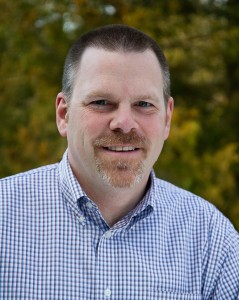Sociology prof studies the transitions today’s emerging adults experience
Professor Tim Clydesdale has identified a “typology” of approaches to life that young adults fall into after college, and has a theory as to why many young Americans are what he refers to as “stunned strugglers.”

Professor Tim Clydesdale
Sociologist Tim Clydesdale is interested in transitions.
His first book, The First Year Out: Understanding American Teens after High School, examined the lives of students in their first year out of high school, including their transition to college. His next book, to be titled Changing on Purpose: When Students and Professors Find Their Calling and funded by a grant from the Lilly Endowment, Inc., will offer an in-depth look at the college journeys of students at 25 campuses across the nation. And Clydesdale is already planning a third, which he said will focus on his observations of young adults from the United States, Canada, and Australia in the first year after college.

“I guess I’m moving up in the life cycle in some ways, having been interested in what happens to folks after high school…. It was just kind of a natural progression,” said Clydesdale, a professor and chair in TCNJ’s Department of Sociology and Anthropology. “At some point I’d like to study the transition from work into retirement.”
Clydesdale, who interviewed 125 American college students during their senior year and year after graduation, saw certain patterns among emergent adults in the United States. He created a “typology” of approaches to life which he said young adults fall into after college, including “career zealots,” “deeply partnered,” “deniers,” “stunned strugglers,” “delayers,” and “outsiders”—religious and otherwise “alternative” individuals who forge their own path, such as through travel or service after college.
Most American students are “stunned strugglers,” Clydesdale found, meaning that when they leave college they struggle in a “sink-or-swim” world and move back in with their parents.
Both of Clydesdale’s current projects have given him insight into what he thinks is causing this trend, as well as what is—and isn’t—working on American college campuses.
While varied books, newspaper articles, and movies have analyzed new trends in the period that sociologists call “emerging adulthood”—from The Chronicle of Higher Education’s May 2008 article “America’s Most Overrated Product: the Bachelor’s Degree” to the 2006 movie Failure to Launch—Clydesdale thinks he found a new piece of the puzzle.
“I think liberal arts education is on some level not understood, is under attack in the wider American culture, and there are number of reasons why that’s so. I think one of the bigger reasons is that (colleges) gave up a generation ago asking these questions,” he said. His study of 25 “church-related” college campuses, which ranged from Duke University to Boston College to Messiah College in Pennsylvania, led Clydesdale to conclude that certain undergraduate programs can make a big difference in a young adult’s transition to adulthood.
“These campuses developed programs to engage students on questions of meaning, purpose, vocation,” said Clydesdale. “I was studying the impact of that.”
According to Clydesdale, students who took advantage of hiking trips, speakers, movies, and service projects that engaged students in discussions of life meaning had less difficulty in the adjustment period after college. This is why he believes more colleges should foster increased “self-knowledge” and awareness of both personal skills as well as a sense of “self-transcendence”—the knowledge that “there’s a bigger world out there” and it’s not “all about me,” said Clydesdale.
In particular, he pointed out the relative success of the “outsiders” in navigating life after college. These young adults who “intentionally set paths of their own choosing … (had) a clearer sense of purpose,” said Clydesdale.
“If (colleges) graduated many more students with a global perspective, who wanted to make a positive impact … I think that they would really dial down the criticism,” he said. “What is the public good? What is the good worth pursuing? … We need to re-engage these questions. They need to be asked again.”
For his part, Clydesdale engages his students in discussion of the deeper questions, and he thinks that others might be surprised how beneficial the process can be for educators as well.
“The educators (I studied) found these questions sort of invigorated them as well,” he said.
Posted on May 9, 2012

